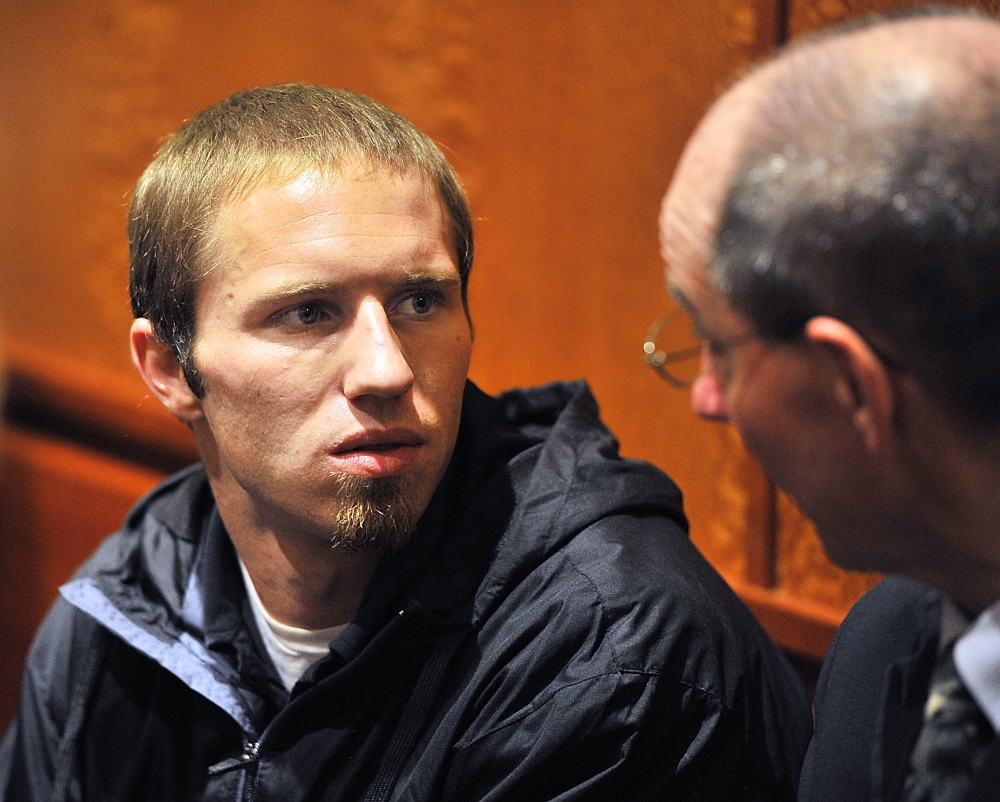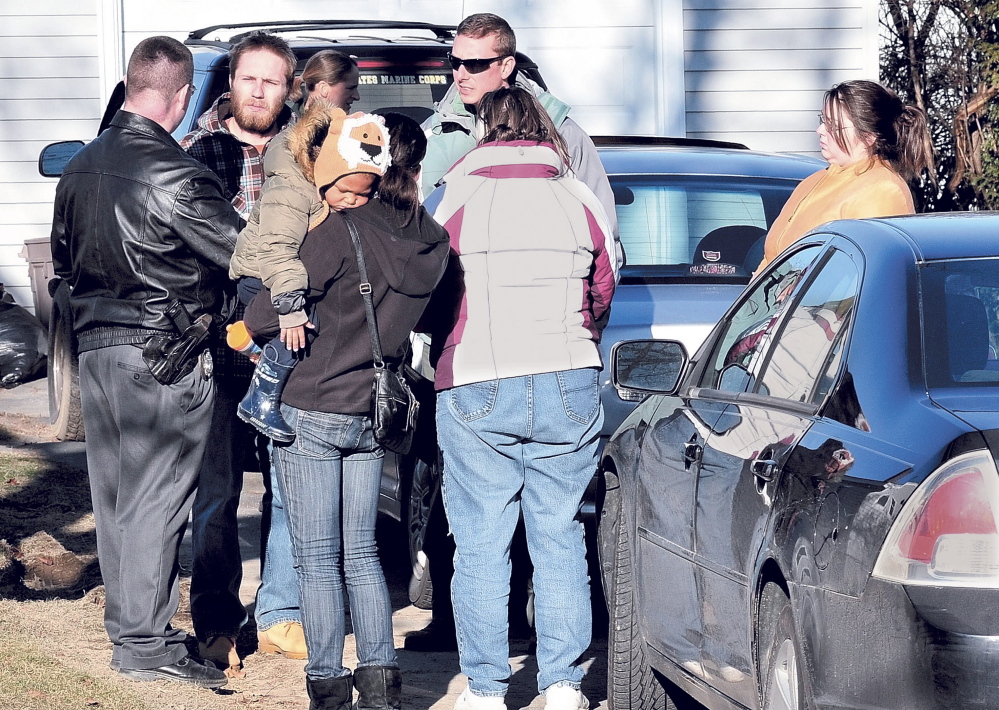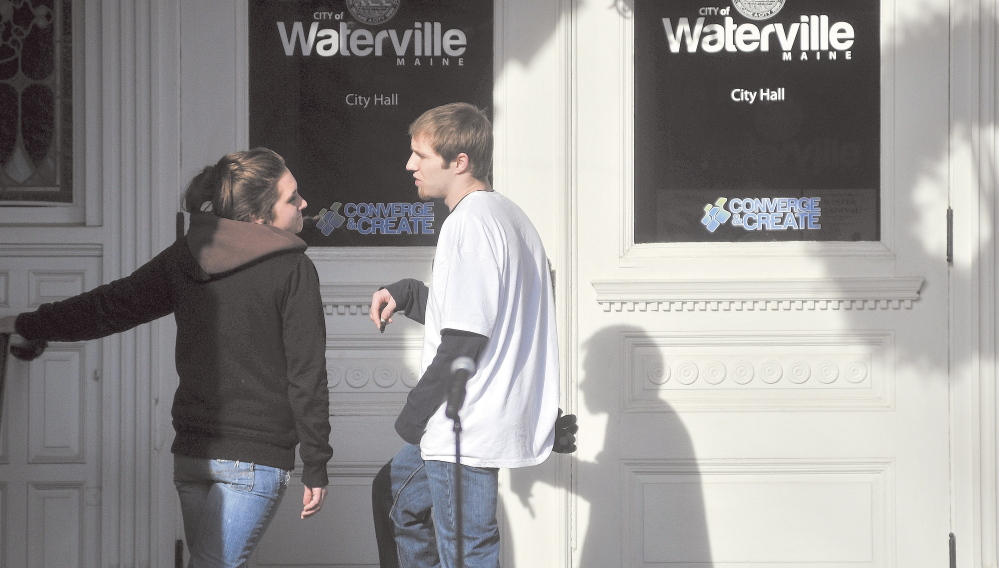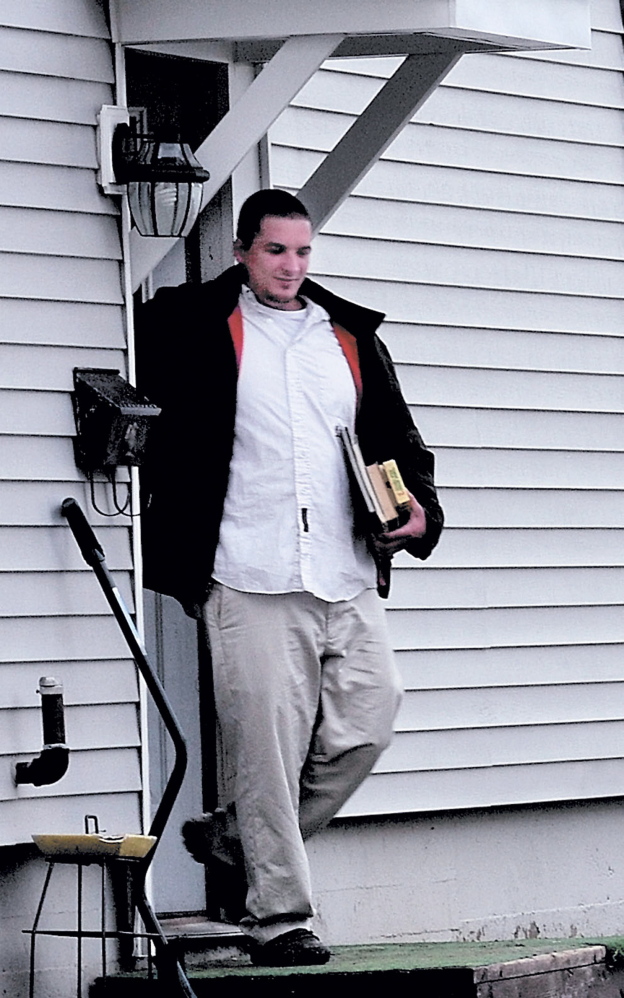In the three years since his daughter’s disappearance, Justin DiPietro has said little about what might have happened to Ayla Reynolds and where she might be.
He has also never wavered from his statements that someone abducted Ayla during the night, even though investigators say they’ve found no evidence backing up that possibility. DiPietro says he awoke to find Ayla missing on the morning of Dec. 17, 2011.
That’s left his daughter’s case in limbo, even as his critics have all but blamed him for being complicit in Ayla’s disappearance and likely death.
Two days after reporting her missing, he appeared on NBC’s “Today” show and explained that during the first few days he was “emotionally incapable of coming out to do an interview.” The next day, he released a written statement through Waterville police saying he didn’t know what happened to Ayla and he would not make “accusations or insinuations towards anyone” until the police investigation was complete.
In April 2012, on Ayla’s birthday, DiPietro told the Morning Sentinel that all he could do was “stay positive.”
“Every day doesn’t get any easier for me,” he said at the time. “Just please, please keep your eyes open and don’t stop, and we will get her home.”
Since then, DiPietro has mostly withdrawn from the public eye.
DiPietro did not respond to multiple requests for an interview recently. Today, he is living in Portland, according to Trista Reynolds, Ayla’s mother, who said she has talked to him on Facebook but that they’ve had minimal contact and she doesn’t know if he works or has a job.
Voicemail messages left for Phoebe DiPietro, Justin’s mother, were not returned. Lance DiPietro, Justin’s brother, agreed recently to leave messages for Justin DiPietro asking him to call a reporter, but the messages were not returned. Lance DiPietro did not answer or return other calls after that.
Steve Bourget, an Augusta attorney who represented Phoebe and Elisha DiPietro — Justin’s sister — said he could not help a reporter to get in touch with them.
“They want their privacy and I think they’re entitled to it,” he said, declining further comment.
Jerry Conley, a Portland attorney who represented DiPietro on a domestic violence assault charge in Cumberland County District Court in Portland over the summer, also did not want to comment.
PUBLIC SUSPICIONS
In 2011, DiPietro had moved to Waterville and was staying at his mother’s house at 29 Violette Ave. and was taking care of Ayla while her mother, Trista Reynolds, was enrolled in a drug rehabilitation program in Portland. Reynolds had filed for custody of her daughter two days before the 20-month-old was reported missing.
When DiPietro called police on the morning of Dec. 17, he said he hadn’t seen his daughter since she had been put to bed the night before. His sister Elisha DiPietro, who was also in the house that night, said Ayla was in her bed when she checked on her at 10 p.m.
The search for Ayla ultimately involved hundreds of volunteers and state and federal law enforcement officials who descended on the quiet neighborhood around Violette Avenue.
During the initial days of the investigation, police said all scenarios were being explored — including the possibility that Ayla wandered off on her own or was taken from the home during the night.
“It is important that the public hear it from me personally that I have no idea what happened to Ayla and that I am not hiding,” he said in a prepared statement on Dec. 21, 2011. “I would never want anyone to spend even a minute in my shoes. No one should ever have to experience this. It has affected me in more ways than anyone can imagine. Please don’t give up or lose hope, because that is easy to do. Please be grateful for what you have. I know what I don’t have.”
Suspicions soon turned to DiPietro in the days leading up to Christmas.
Ayla’s disappearance drew attention from media and missing child advocates around the country, including criticism of DiPietro as a father and speculation that he had contributed to his daughter’s disappearance, or even her death.
“I’m very, very concerned that daddy says he falls on the baby on the stairs and breaks her arm, and then daddy is the one (around) when the baby goes missing,” said HLN talkshow host Nancy Grace, referencing Ayla’s broken arm in a show on Dec. 19, 2011.
At the time of her disappearance, Ayla’s left arm was in a cast. DiPietro said it happened on a rainy night in November when he slipped trying to carry the toddler and a bag of groceries into the house, and he fell on her.
“I was carrying her,” he later recalled. “Usually I let her walk, but it was raining out that night and it was dark.”
Everything seemed normal afterward, he said, because she was just a little fussy and had some bruising. The next day, DiPietro was getting ready to attend a commercial driver’s license course at Lawrence Adult Education in Fairfield when his mother noticed Ayla’s hand was swollen.
He went to the class but left early out of concern for Ayla, he said, and took Ayla to the emergency room, where they learned the toddler’s forearm was broken.
‘STRAIGHT-FACE TEST’
Six days into the search, on Dec. 22, 2011, investigators put crime scene tape around 29 Violette Ave., and two of the state’s top homicide investigators visited the house. On Dec. 23, Reynolds appeared on NBC’s “Today” show and for the first time she publicly blamed DiPietro for not keeping Ayla safe. The day after Christmas, police ruled out the possibility Ayla left the house on her own.
A turning point came Dec. 30, 2011, when police announced that foul play was suspected in what was now considered a criminal case. The Maine State Police Major Crimes Unit took the lead in the investigation.
Trista Reynolds has spoken at length with the media several times in the ensuing years, aiming her suspicions and anger at DiPietro, but her father has remained elusive since suspicions have centered on him and the other two adults who were in the house that night.
Police would later say DiPietro and the other two adults — his sister, Elisha DiPietro, and former girlfriend, Courtney Roberts — were not telling authorities all that they knew.
Trista Reynolds and members of her family have consistently called on law enforcement to bring criminal charges against the three adults.
“There were three adults in the home, and their version of events is not backed up by any forensic evidence that we have located,” Steve McCausland, spokesman for the Maine Department of Public Safety, said in January 2012, shortly before police revealed that traces of Ayla’s blood had been found in the basement of the Violette Avenue home. “That someone slipped into the home in the middle of the night, while three adults are there … that someone went into the bedroom where Ayla was sleeping alone, removed her and vanished into the night — and that the three adults did not see or hear anything — doesn’t pass the straight-face test.”
About three months after Ayla was reported missing, a Clinton man was charged with vandalism after smashing windows of the Violette Avenue home. DiPietro has also received verbal threats and threats in the mail, his friends have said.
By early January 2012, DiPietro said he was working from home, trying to raise awareness about his missing daughter. He said he was working on putting together T-shirts, bracelets, posters and more with help from the Laura Recovery Center for Missing Children, a nonprofit organization devoted to preventing abductions and runaways and to recovering missing children.
On Jan. 13, DiPietro told the Morning Sentinel he took a polygraph and police didn’t show him results, but he knew he “smoked it.” McCausland said DiPietro “knows how he did, because we told him.”
Phoebe DiPietro said around that time that she was proud of her son and he had “handled the scrutiny so well.”
“All the cruel, mean things people have said. We’re crawling through hell, and people are accusing him of things that are just incomprehensible,” she said.
‘I KNOW YOU CARE’
Even though DiPietro has largely avoided the media spotlight in recent years, his name and face have cropped up on a few occasions.
This past September, a woman named Angela Alley placed a legal notice in the Morning Sentinel seeking to find Justin DiPietro, whom she named as the father of her child, Zane Alley, born Jan. 23, 2014. The ad said Angela Alley wanted to put the child up for adoption, but she had to contact legally DiPietro first asking if he wanted to establish parental rights.
The ad gave an address for an attorney’s office in Gorham, but an attorney who answered the phone wouldn’t comment on whether Alley was a client or what had happened with the case.
Reynolds said in an interview that “they found Justin and they ended up putting the baby up for adoption,” but the Morning Sentinel could not confirm that.
The most prominent moment in recent years — a tense courtroom confrontation unrelated to Ayla’s case that spilled out onto the streets of Portland — happened Sept. 25, 2013.
Trista Reynolds went to the Cumberland County courthouse with her family to confront DiPietro, who was there on an unrelated charge that he shoved Roberts, his ex-girlfriend. Phoebe DiPietro called Reynolds’ father, Ron Reynolds, an obscenity in the courtroom, prompting him to follow her into a hallway, where the verbal exchange escalated.
Phoebe DiPietro and Ron Reynolds were escorted from the building by judicial marshals, followed shortly afterward by Trista Reynolds and other members of her family, who were also asked to leave.
Reynolds planned a news conference to coincide with DiPietro’s court hearing to raise awareness that no one has yet been charged in Ayla’s disappearance.
“I don’t understand why Justin, Elisha and Courtney have not been charged yet,” she said outside the courthouse. “I don’t understand why they haven’t been charged with lying to the police.”
DiPietro pleaded guilty at the hearing to violating conditions of release related to a traffic stop Sept. 6, 2013, in which police found alcohol in his vehicle. He was sentenced to four days in jail, which he had already served, and ordered to pay a $150 fine. DiPietro also had faced a charge of assault related to the incident in July with Roberts, but that charge was dropped because Roberts changed her story since filing the complaint.
Trista Reynolds and her father waited with their supporters outside the courthouse while Justin DiPietro’s case was resolved. When Justin DiPietro and his mother came outside and started walking away from the courthouse, Reynolds and her father followed, shouting at them. Reynolds removed her high heels, giving chase.
“Tell me what you did to her,” Reynolds shouted.
At the Portland Police Department to finish paperwork, DiPietro and his lawyer stood by a reception area as Trista Reynolds stood a few feet away, TV cameras and microphones surrounding them.
The case’s lingering emotions were captured: Reynolds and her family angrily demanding justice, while DiPietro and his supporters stayed quiet.
“I can see it in your eyes,” Reynolds said, as DiPietro looked past her without expression. “I know you care.”
Leaving the station, DiPietro ran down the steps, away from Reynolds, as she shouted, “What did you do with her?”
In July 2013, the last time DiPietro talked to the Morning Sentinel, he told a reporter he was “trying to live a normal life.”
Rachel Ohm — 612-2368
rohm@centralmaine.com
Twitter: @rachel_ohm
Send questions/comments to the editors.






